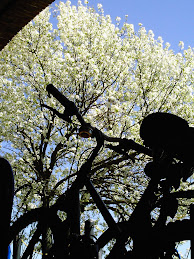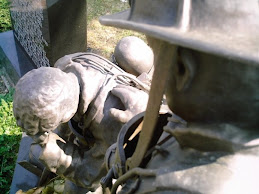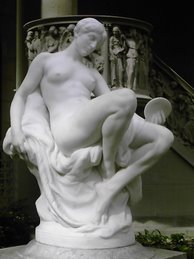By Joseph Kellard
On the high praise from Lisa VanDamme, I read, enjoyed and recommend L.M. Montgomery’s “Anne of Green Gables.” This is VanDamme’s favorite children’s novel, about which she writes (in her essay “The Hierarchy of Knowledge” from the inaugural issue of The Objective Standard): “Anne, the main character, has a passionate, independent spirit that makes a lasting impression on children and adults alike. Her adventures are delightful to every child, and the theme of the novel, which concerns the importance of pursuing your values with passion, is one that children can understand.”
I concur and recommend this novel to anyone for them to simply contemplate a child with an exuberant enthusiasm, that is, the benevolent spirit Ayn Rand encourages her readers to cherish and foster throughout their lives.
Siblings and farmers Matthew and Marillia Cuthbert adopt Anne Shirley, a romantically imaginative, ambitious, talkative young orphan. From there the novel takes us through Anne’s various interactions and relationships with her parents, peers and fellow townspeople as she learns various lessons of life. Yet Anne provides the best lesson of all, being an exemplar of how to love life, to be endlessly curious about all it has to offer, and to have and passionately pursue values and goals.
(Plot spoilers ahead.)
From early on Anne states her goals, the highest being to wear nice clothes (esp. dresses with puffy sleeves), since the orphanage dressed her in plain, dull threads, and as she grows her goals become evermore ambitious. Near novel’s end Anne pursues a scholarship she must earn with the highest marks in English and English literature. “I’ll win that scholarship if hard work can do it,” Anne says. “Wouldn’t Matthew be proud if I got to be a B.A.? Oh, it’s delightful to have ambitions. I’m glad I have such a lot. And there never seems to be any end to them -- that’s the best of it. Just as soon as you attain to one ambition you see another one glittering higher up still. It does make life so interesting.”
(More plot spoilers ahead.)
“Anne of Green Gables” also has some unexpected gems, such as a proper appeal to self-interest over self-sacrifice. After Matthew dies and as Marillia fears she may go blind, Anne decides to study at home instead of going off to college on the scholarship she’s won. Marilla says: “Oh, Anne, I could get on real well if you were here, I know. But I can’t let you sacrifice yourself so for me. It would be terrible.” Anne tells the woman who adopted her and thus made possible her many opportunities for a better life: “Nonsense! There is no sacrifice. Nothing could be worse than giving up Green Gables -- nothing could hurt me more…” Here, Anne identifies a sacrifice for what it is, giving up a value for a lesser or non value, and Marillia does what a parent should do by not expecting one’s child to sacrifice for her, identifying that prospect as “terrible.”
But, again, the novel should be read for Anne’s unabashed benevolent spirit. While the book is filled with action scenes and dialogue that capture this spirit, here’s an exemplary descriptive passage as Anne contemplates the world ahead: “…Anne….looked out unheedingly across city roofs and spire to that glorious dome of sunset sky and wove her dreams of a possible future from the golden tissue of youth’s own optimism. All the Beyond was hers with its possibilities lurking rosily in the oncoming years -- each year a rose of promise to be woven into an immortal chaplet.”
I’m reminded here of “Ninety Three,” my favorite column from “The Ayn Rand Column,” in which Miss Rand writes: “When people look back at their childhood or youth, their wistfulness comes from the memory, not of what their lives had been in those years, but of what life had then promised to be. The expectation of some undefinable splendor, of the unusual, the exciting, the great, is an attribute of youth -- and the process of aging is the process of that expectation's gradual extinction.“One does not have to let it happen. But that fire dies for lack of fuel, under the gray weight of disappointments, when one discovers that the adults do not know what they are doing, nor care -- that a person one respected is an abject coward -- that a public figure one admired is a posturing mediocrity -- that a literary classic one had looked forward to reading is a minute analysis of people one would not want to look at twice, like a study in depth of a mud puddle.
“But there are exceptions.”
Yes, there are, and “Anne of Green Gables” is one of them.
Please post a comment about this article. For private comments, email Joseph Kellard at Theainet1@optonline.net.
Copyright © 2007 Joseph Kellard
Sunday, October 14, 2007
Subscribe to:
Post Comments (Atom)































+-+June+2009.jpg)











No comments:
Post a Comment